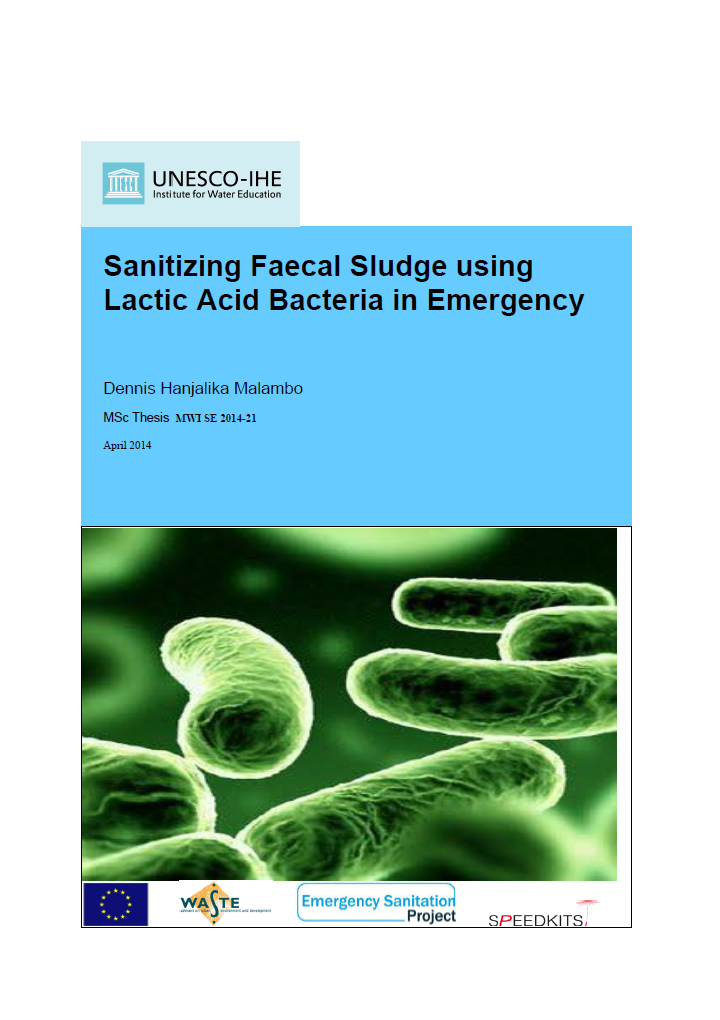Sanitizing Faecal Sludge using Lactic Acid Bacteria in Emergencies Malambo, D. (2014)
Providing safe excreta collection and disposal in emergency situations has remained one of the most urgent priorities in the disaster relief effort. This is because of the high risk to human health that exposed and unsanitized human excreta pose. With an increase in the frequency and intensity of natural disasters in recent years, humanitarian aid and related organisations worldwide are currently exploring sustainable low cost sanitation technologies and methods that promote safe excreta collection and disposal in disaster and emergency situations.
The objective of the research was to evaluate the sanitizing effect of lactic acid and other metabolites produced by Lactic Acid Bacteria (LABs) on human excreta by exploiting and promoting the Lactic Acid Fermentation (LAF) process. The research further explored the pre-conditions required (such as sugar and inoculum concentrations) and the suitability of Yakult, a probiotic milk product, being used as the microbial inoculant to the treatment process. Molasses was selected and used as the sugar additive for the promotion of the LAF process and Escherichia coli as the indicator organism.
Bibliographic information
Malambo, D. (2014). Sanitizing Faecal Sludge using Lactic Acid Bacteria in Emergencies UNESCO-IHE, Delft, Netherlands.
Filter / Tags
Faecal sludge treatment processesCamps (emergency or longer term)English

